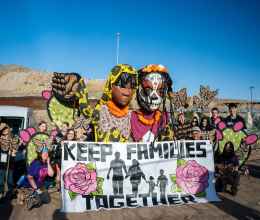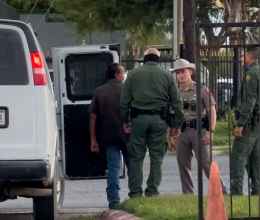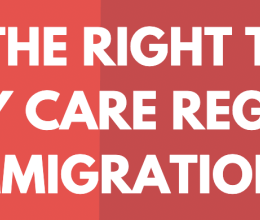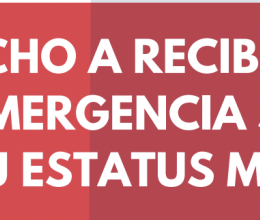
Anti-immigrant laws like Senate Bill 4 are part of a much larger, unconstitutional effort by Texas politicians to enforce discriminatory immigration policies through the state’s controversial program known as Operation Lone Star (OLS).
Gov. Greg Abbott launched OLS in March 2021. Since then, Texas has spent more than $11.2 billion on the program. OLS claims to stop migrants from allegedly bringing drugs and crime into Texas — even though the state’s own data proves that’s not the case.
Our latest report reveals that OLS spends billions of dollars to racially profile and arrest people who pose no threat to public safety, then forces them into a separate and unequal legal system run by the state.
Key Findings
- OLS demonstrates racial profiling and unconstitutional policing.
- OLS has primarily arrested people accused of low-level offenses like trespassing, rather than drug-related offenses, human smuggling, or weapon charges.
- OLS has overwhelmingly prosecuted U.S. citizens, rather than migrants, for drug-related offenses, human smuggling, and weapon charges.
- OLS has expanded far beyond the border.
- OLS data is inconsistent across state agencies.
Report
Recommendations
Unchecked cruelty is not a policy solution. Operation Lone Star must be shut down.
As long as Operation Lone Star is operational, the following recommendations will help stop the human and civil rights violations of this program, reduce its harsh impacts on border communities, and waste fewer taxpayer dollars:
- Return access to local parks and banks along the Rio Grande to border communities.
- Stop abusing emergency disaster declarations.
- Repeal enhanced trespass penalties.
- Coordinate with the federal government to ensure that people seeking asylum are given their lawful right to do so.
- Establish an independent monitor to oversee DPS, the Texas National Guard, and other OLS actors.
- Redirect OLS funds to impacted ranchers and farmers and other members of border communities that face land use issues.
- Make the program transparent and accountable to Texans and policymakers by improving data collection and reporting.






